"Do not disturb, do not destroy" - with freedom comes responsibility
The information below focuses particularly on Allmansrätten ("Everyone's Right"), the Swedish Right of Public Access. However, similar freedoms also exist in Norway and Finland. For more information on how Everyman's Right applies in Finland, see Finland's Environmental Administration website. For Norway, see this information from the Norwegian Environment Agency.
Did You Know...?
All our canoeing holidays, kayaking, timber rafting and packrafting tours in Sweden are all based on wild camping within the guidelines of the Right of Public Access. Other summer activities such as hiking, as well as our range of dog sledding and ski touring experiences in wintertime also depend on the privileges and freedoms afforded by this Right.
We also have a PDF document summarising Allmansrätten.
- What is the Swedish Right of Public Access?
- Where does the Swedish Right of Public Access come from?
- What is its general principle?
- Why is it necessary?
- What controls are there to ensure that companies follow the rules?
- Can I walk or ski anywhere in Sweden?
- What about cycling?
- Can I ride a horse in Sweden?
- Can I fish without a licence in Sweden?
- Can I pick mushrooms, berries and flowers in Sweden?
- Can I take my dog on holiday to Sweden?
- Can I light camp fires in Sweden?
- I've heard that you can camp wild anywhere in Sweden. Is this true?
- Can I recycle my rubbish in Sweden?
- I'd like to take my caravan or motor-home to Sweden. What freedoms will I have?
- What about sailing, boating and swimming in Sweden?
- A final thought...
What is the Swedish Right of Public Access?
Allmansrätten, or “Everyone's Right”, is an important part of Swedish cultural heritage, a unique freedom of access to Sweden’s countryside and wild places, and one of the things which makes Sweden such an attractive destination for the outdoor enthusiast.
Where does the Swedish Right of Public Access come from?
The origins of the Right date back to the local laws and customs of the Middle Ages, and it is of enormous importance in Sweden both to individuals and to groups, clubs and tour operators (such as ourselves). Clubs and companies are permitted to take advantage of the Right of Public Access when conducting activities in the Swedish countryside, although in essence the Right is limited to individuals.
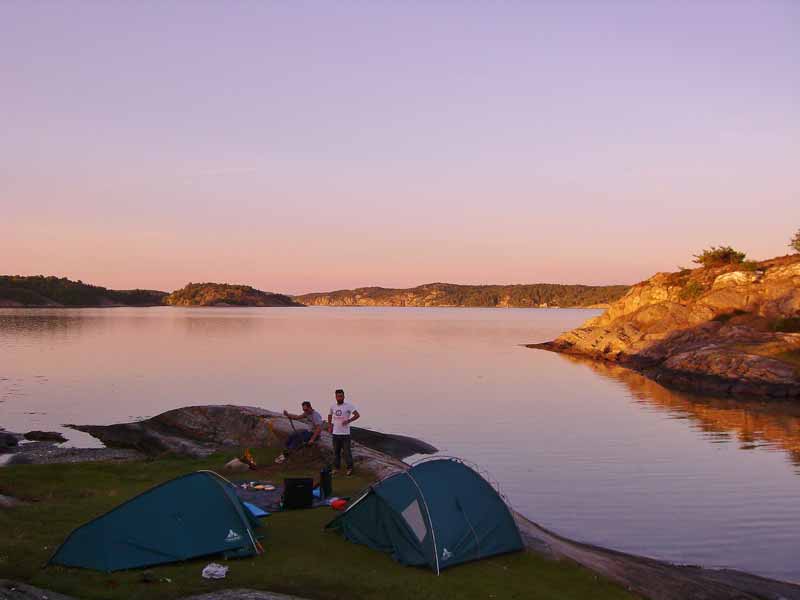
Photo: Jed Richards
What is its general principle?
The Right of Public Access has a number of parts, which are discussed in more detail below, but its central tenet is “Do not disturb, do not destroy”. With the considerable freedom and right to roam afforded by Allmansrätten comes the burden of care and responsibility, and the principles of the Right are there both for the enjoyment of outdoor activities in Sweden and for the protection of its rich flora and fauna.
Why is it necessary?
With a growing global population and increased pressure on natural areas everywhere for recreational purposes, the principles of the Right of Public Access are more important than ever, providing an important framework for the sustainable enjoyment of Sweden’s countryside and wilderness areas. If these areas are used without care or respect, irreparable damage can occur to the natural environment, which may include:
- litter and toilet waste
- erosion of paths and soil
- depletion of natural resources such as wood for fire making
- damage to fragile ecosystems and removal of rare or vulnerable species
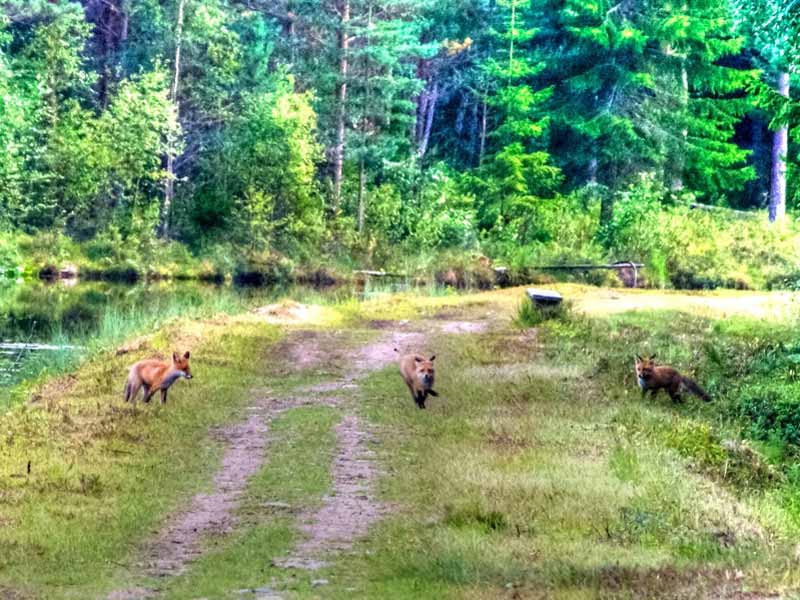
Photo: Jonathan Perry
What controls are there to ensure that companies follow the rules?
The Swedish Environmental Code requires organisers of outdoor activities in the countryside to demonstrate a knowledge of and respect for the natural environment of the area in which their activities take place. They are also obliged to inform participants in their experiences of the principles of the Right of Public Access and how the natural environment of the area can be conserved and protected.
At Nature Travels, we work exclusively with small-scale partner companies in Sweden. All have a written environmental code of practice and the great majority of these companies are members of the Swedish Ecotourism Society. Many have also passed through a strict quality-control system to receive a quality mark for their high standard of environmental commitment. As part of the criteria which must be met for certification, companies must provide a detailed analysis of how their activities impact the local environment and what measures they have to manage this impact.
If you have any questions about how the Right of Public Access applies to your chosen experience, please don’t hesitate to ask and we will be happy to discuss it with you.
Can I walk or ski anywhere in Sweden?
Within certain guidelines, yes. Following the principle of "Do not disturb, do not destroy", you may not walk or ski on cultivated ground or in the grounds around someone’s house. There are no limits or distances defined in law, but people engaged in outdoor activities in Sweden are required to exercise common sense and consideration. For example, a newly-planted section of a forestry plantation would also be considered “off-limits”, even though it may not be seen as cultivated ground as such. Common sense also allows you to interpret the Right sensibly – you should not cross a crop field where crops are growing, but if the ground is hard and snow-covered in winter, there is no reason why you should not be allowed to cross.
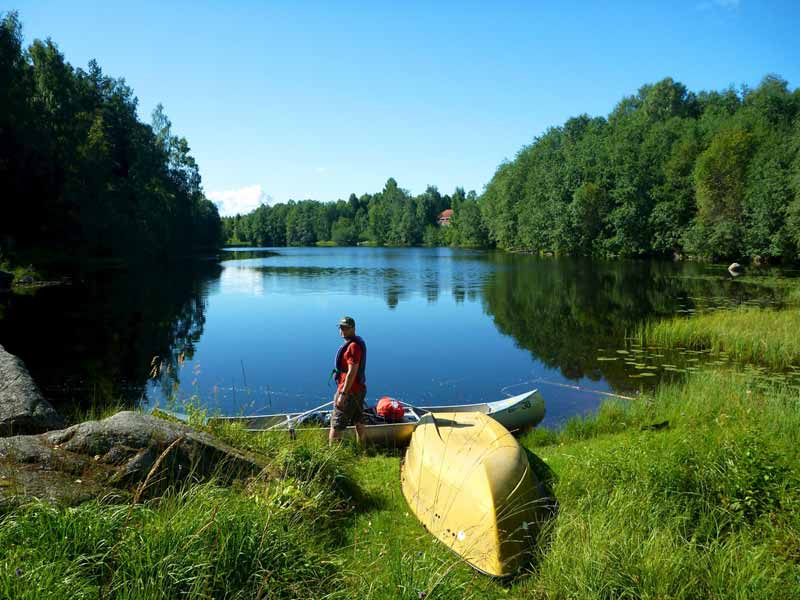
Photo: Jonathan Perry
What about cycling?
The Right of Public Access also allows great freedom for cycling in Sweden. Again, you must use your discretion to judge whether or not your presence will disturb or destroy, but you are allowed access to all private roads, and it is not permitted for a landowner to put up a sign prohibiting you from cycling on the road or path.
You should ensure that you choose the correct cycling style to suit the area and the environment. Avoid places or times or weather conditions when your tyres could cause erosion, keep off fragile areas such as those covered in moss or lichen, and if cycling on a trail intended for hikers or joggers, cycle slowly and show consideration for other uses of the paths, giving way to joggers and walkers.
There are exceptions to the freedoms afforded to the cyclist in Sweden. Local authorities may decide to introduce "No Cycling" restrictions on some paths, while inside National Parks and other protected areas, cycling may be banned completely.
Can I ride a horse in Sweden?
Again, horse riding in Sweden is permitted in most areas under the Right of Public Access. Because of the great potential for riders to damage ground and cause erosion, there are a number of things you should bear in mind when riding your horse in Sweden.
You should avoid trails specially intended for hikers, joggers or skiers and avoid sensitive ground such as bogland or moss-covered areas. You should also be careful not to damage young trees and be especially cautious when the ground is wet around spring and autumn. If riding in the same area on a regular basis, it is advisable to ask for permission from the local landowner. You should also avoid cultivated ground and the grounds of houses as you would if walking or cycling.
Unlike for cyclists, landowners can erect a "No Riding" sign in areas where there is high risk of damage to the ground. Local authorities and National Parks and nature reserves may also have their own restrictions.
Can I fish without a licence in Sweden?
No, not generally. As a non-Swedish citizen, you are required to have a licence unless fishing with hand-gear in public waters. In all other cases, you must obtain a fishing permit. Fishing is prohibited within 100m of stationary fishing equipment and fish farms. You are permitted to fish from a private jetty on an occasional basis (though not one next to someone's house), but must of course give priority to the owner of the jetty if they require access for a boat, etc.
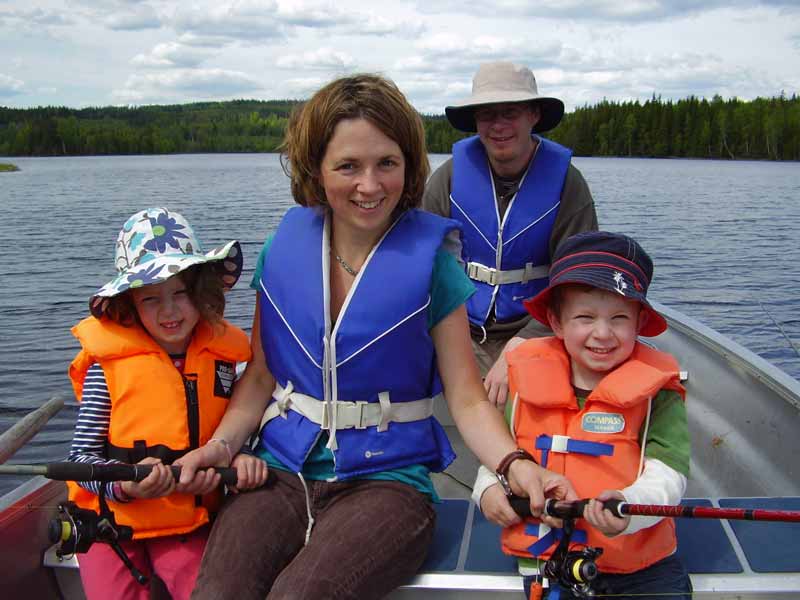
Photo: Helen Kemp
Can I pick mushrooms, berries and flowers in Sweden?
One of the great joys of being out in the forests of Sweden is the rich carpets of flowers and berries which cover the forest floor, and the wide variety of mushrooms available at different times of year. Looking for and gathering this forest bounty is a popular activity for Swedes and visitors alike.
You are permitted to pick flowers, berries and mushrooms for private use, but must avoid protected species and should also use your discretion for other fragile species which may not yet be formally protected. There may be local restrictions in place if a particular species is vulnerable in that area. Protection for plants and animals is usually absolute – you are not permitted to disturb them in any way, even within the grounds of your house. In other cases, protected may be partial, so that certain flowers can be picked for private use, but not dug up by the roots. If a property is abandoned and there are no standing buildings, it is permitted for you to collect fruit, e.g. apples, raspberries, gooseberries, etc. from the abandoned orchard.
Live wood is also protected, and you may not chop wood from a growing tree to make a fire or otherwise cause damage to it (e.g. by carving in the bark).
As with many other aspects of the Swedish Right of Public Access, National Parks and protected areas may have their own restrictions on the collection of berries, flowers and mushrooms.
Can I take my dog on holiday to Sweden?
Many Swedes own dogs themselves, and dogs are generally very welcome in Sweden. There are certain restrictions designed to protect wild animals during the most vulnerable times of the year and to prevent harm to livestock.
Between 1st March and 20th August, it is important that dogs are not allowed to run loose in the countryside. In practice, this means that dogs should be kept on a lead in areas where there are wild animals, livestock or game. Outside this period, dogs should be kept under close control, and if you are in an area which practices reindeer husbandry, dogs not used for reindeer herding must be on a lead at all times.
Once again, National Parks and other protected areas will have their own regulations, and in some National Park areas dogs are prohibited.
If you would like to take your dog on holiday to Sweden, dogs are welcome at some on our experiences (such as log cabin stays or a canoe tour). Please contact us for details. You should be aware that the regulations for bringing a dog into Sweden are usually tighter than for other EU countries. Please don’t hesitate to contact us for advice or assistance.
Can I light camp fires in Sweden?
Yes, lighting fires is permitted under the Right of Public Access, but you must follow certain precautions to minimise damage and the risk of an uncontrolled fire.
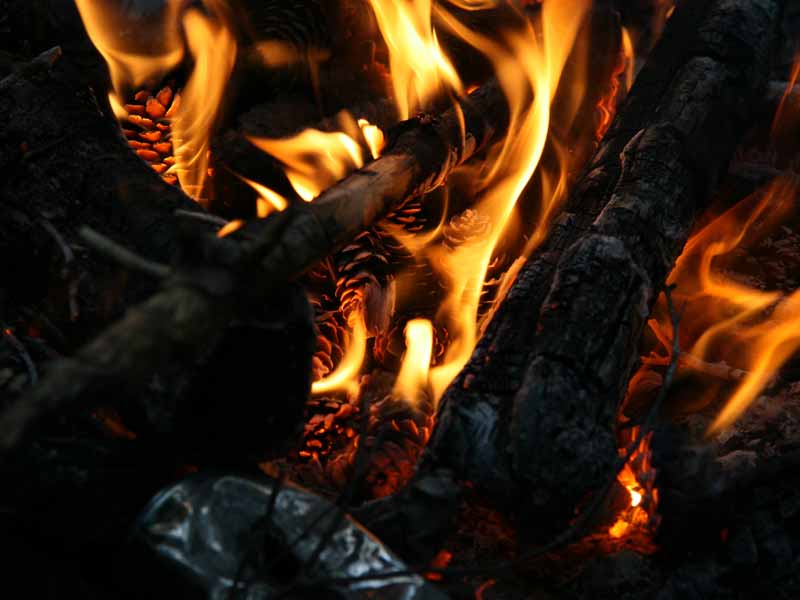
Photo: Matt Womersley
Many people do not think of Sweden as a hot country, but in fact during the summer, the forests and heathlands can become extremely dry and large forest fires are a very real danger.
You must site your fire where there is no risk of the fire spreading and where the fire will not cause damage, such as on sandy ground or gravel. Avoid mossy and peat-bog areas, as the fire is likely to spread and can also burn underground unnoticed long after you have left. You should also not light your fire next to a rock, as this can crack and scar the rock. Wet stones may crack and even explode when heated. You are permitted to collect cones, fallen branches and twigs for your fire, but must not gather live wood or use fallen trees. Dead trees are extremely valuable habitats for wildlife and must be left intact.
At times where there is a high risk of fire, a ban may be imposed by the local authority. In this case, you are not allowed to light fires, but may still use designated grill spots and a camping stove with care.
Don’t forget that National Parks and nature reserves in Sweden may have their own regulations regarding camp fires.
I've heard that you can camp wild anywhere in Sweden. Is this true?
Up to a point, yes. The freedom to camp wild is one of the great joys of an outdoor holiday in Sweden. You should not pitch your tent on farmland or near a house, and stays in any one location are limited to a night or two.
Groups of friends pitching two or three tents do not need to obtain permission from the landowner, but as always, you must respect the privacy of anyone living nearby and take care not to damage the natural environment.
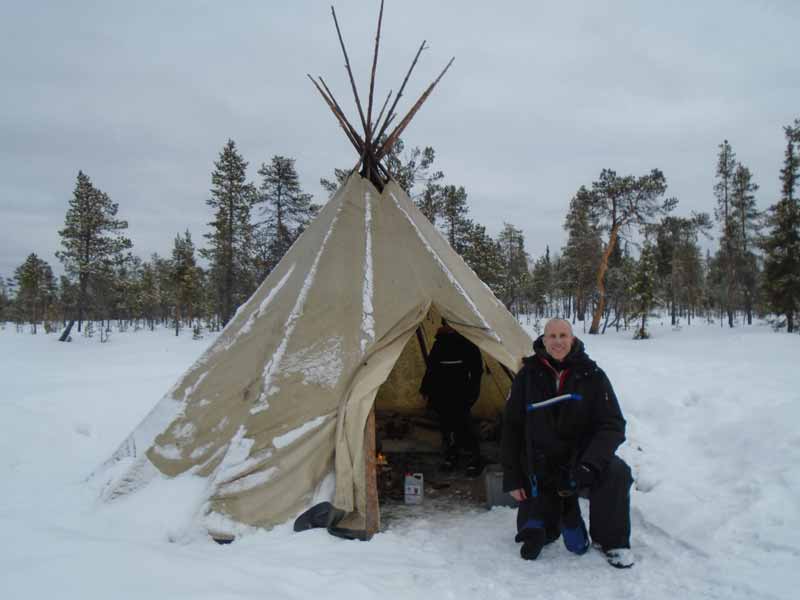
Photo: John Wilton
Generally, a good rule of thumb is to ensure that you pitch your tent out of sight of people’s houses and do not stay more than two nights in the same spot. Don’t forget to take all your litter away with you (including food scraps – orange peel, for example, can take many years to degrade naturally!). If no other option exists, make sure you bury your toilet waste properly. Choose a spot at least 50m from houses, camping spots, water sources, etc. Dig a hole 15cm deep for your waste and then fill in soil on top. Do not bury non-degradable items such as children’s nappies or female sanitary products.
Can I recycle my rubbish in Sweden?
Yes, most areas of Sweden have very good facilities for recycling. In addition to the standard containers for glass, paper and cans common in the UK, many small towns or village supermarkets will also have stations to recycle batteries and plastics. If you buy drinks in aluminium cans or plastic bottles (“PET-flaskor” in Swedish), a few kronor of the price you pay will be a deposit, or “Pant”. Many shops will have a station near the entrance where you can return these bottles and reclaim your deposit. Just ask the shop assistant for help. If you want to recycle your cans, be careful not to crush them, as the deposit machines will only accept non-crushed ones.
I'd like to take my caravan or motor-home to Sweden. What freedoms will I have?
Along public roads, you may stay for 24 hours in lay-bys and designated public parking areas, or until the next weekday at weekends or on public holidays. You must not drive your vehicle off-road, e.g. to park in a field or on a beach.
What about sailing, boating and swimming in Sweden?
As with other aspects of the Swedish Right of Public Access, provided you show suitable care and consideration, a great deal of freedom is allowed. You should ensure you are aware of local regulations which apply to you and demonstrate good seamanship at all times.
It is permitted to temporarily moor a boat off the shore, to swim, to cast anchor and to go ashore, as long as you are not within the grounds of a private house or in a protected natural area. In the same way that you should not camp in the same spot for more than two nights, you should not moor your boat in the same place for more than two nights before moving on.
Be especially careful around bird or seal sanctuaries, where you are not permitted to go ashore. Make sure you look for the signs for advice in local areas.
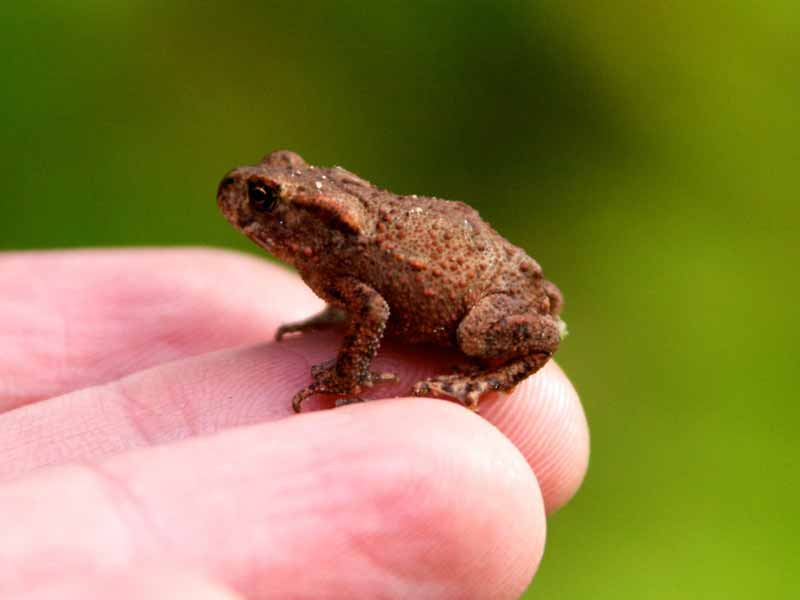
Photo: Jonathan Perry
A final thought...
The Swedish Right of Public Access is a wonderful cultural institution, providing unique freedoms to Swedish citizens and visitors alike. As long as its principles are respected, and common sense exercised at all times when judging what is or is not possible, there is no reason why everyone should not continue to enjoy these freedoms long into the future. With increasing pressure on all our natural areas and the rise in popularity of outdoor recreation, it is now more important than ever that its ideas of fair and sustainable use of the countryside are observed. If we "Do not disturb, do not destroy", the valuable natural environment of this vast and beautiful country can be enjoyed by all for many years to come.
Please see the website of the Swedish Environmental Protection Agency for more information on the Swedish Right of Public Access.



